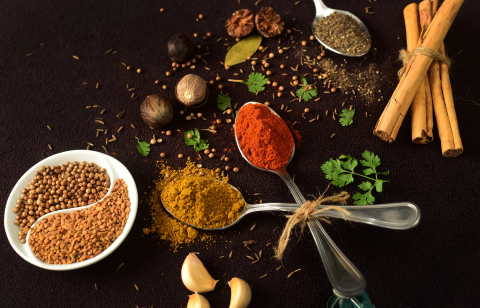
The Allure of Ceylon Spices: A Culinary Treasure
Ceylon, now known as Sri Lanka, is a small island nation in the Indian Ocean that boasts a rich history and an equally rich culinary heritage. Central to this heritage are Ceylon spices, renowned for their exceptional quality, distinct flavors, and aromatic profiles. These spices have not only played a pivotal role in the island's cuisine but have also significantly impacted global trade and culinary practices for centuries. Let's delve into what makes Ceylon spices so special and why they continue to enchant the world.
Historical Significance
Sri Lanka's history is deeply intertwined with the spice trade. For centuries, its strategic location made it a crucial hub for merchants traveling between the East and the West. Ancient traders from Rome, Arabia, and later European colonial powers such as the Portuguese, Dutch, and British, all coveted Ceylon spices, leading to centuries of trade and conflict. This rich historical tapestry has endowed Sri Lanka with a diverse culinary tradition and a deep understanding of spice cultivation.
Unique Growing Conditions
One of the key factors that contribute to the superiority of Ceylon spices is the island's unique climate and geography. The tropical climate, with its monsoon seasons, fertile soil, and varying elevations, provides the perfect conditions for growing a wide variety of spices. The distinct microclimates in different parts of the island mean that each spice can be grown in its ideal conditions, enhancing its flavor and aroma.
Varieties of Ceylon Spices
- Often referred to as "true cinnamon," Ceylon cinnamon is prized for its delicate, sweet flavor and health benefits. It is softer and more aromatic compared to the commonly available Cassia cinnamon. Used in both sweet and savory dishes, Ceylon cinnamon is a staple in kitchens worldwide.
- Known as the "King of Spices," Ceylon black pepper is celebrated for its robust flavor and pungent aroma. The island's peppercorns are smaller but pack a punch, making them a favorite among chefs and home cooks alike.
- Often called the "Queen of Spices," Ceylon cardamom is highly aromatic with a sweet, floral flavor. It is a key ingredient in many spice blends, desserts, and beverages. The high elevation regions of Sri Lanka are particularly suited for growing this exquisite spice.
- Ceylon cloves are known for their intense flavor and strong aroma. They are used in both culinary and medicinal applications. The cloves from Sri Lanka are often considered superior due to their high oil content.
- Sri Lankan nutmeg and its companion spice, mace, are valued for their warm, nutty flavor. These spices are commonly used in baking, desserts, and savory dishes, adding depth and complexity to recipes.
Culinary Use
Ceylon spices are incredibly versatile, finding their way into a variety of dishes across different cuisines. Here are a few ways these spices are used:
- Curries and Stews: Ceylon spices are the backbone of many Sri Lankan curries and stews. The complex blend of cinnamon, cardamom, cloves, and pepper creates a symphony of flavors that is both comforting and exhilarating.
- Baking and Desserts: Ceylon cinnamon and nutmeg are popular in baking, adding warmth and sweetness to cakes, cookies, and pastries. Cardamom is often used in puddings, ice creams, and other desserts to impart a unique floral note.
- Beverages: Spices like cinnamon and cardamom are essential in making traditional Sri Lankan teas and spiced milk drinks. They also feature prominently in chai, mulled wine, and other spiced beverages around the world.
- Health and Wellness: Beyond their culinary uses, Ceylon spices are also valued for their health benefits. Cinnamon is known for its anti-inflammatory properties and ability to regulate blood sugar levels, while black pepper aids in digestion and enhances nutrient absorption.
Conclusion
The specialty of Ceylon spices lies in their unparalleled quality, rich flavors, and historical significance. These spices are more than just ingredients; they are a testament to Sri Lanka's cultural heritage and its pivotal role in the global spice trade. Whether you're a culinary enthusiast or a casual cook, incorporating Ceylon spices into your kitchen repertoire can elevate your dishes and provide a taste of history with every bite. Embrace the magic of Ceylon spices and let your culinary creations tell a story of tradition, trade, and timeless flavor.